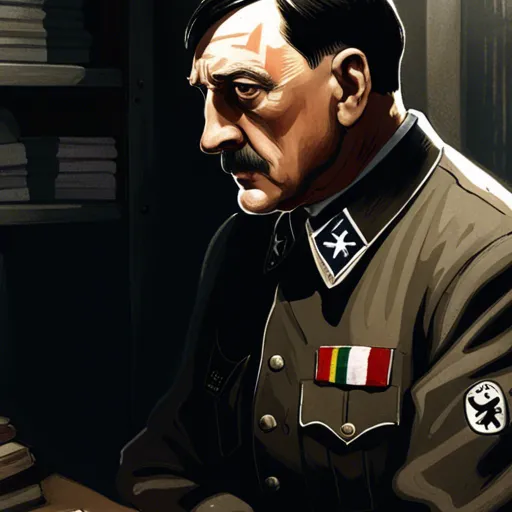10 things I learned from The Rise and Fall of the Third Reich: A History of Nazi Germany by William L. Shirer
This audiobook is 57 hours long, and the print is 1280 pages! I am halfway through so far. It is important to understand how this happened.
I was aware of the awful things that happened in the late 1930s and 1940s, but I had no idea how Hitler and the Nazi party were able to start. It took a combination of very high intelligence, combined with a lack of education, and probably a strong amount of mental illness and a belief that he was "chosen" to maintain the drive to go from being a penniless loner in jail to one of the most impactful leaders of the world in less than 10 years. Hitler played a very long game: he planned what he did over about 15 years starting with writing Mein Kampf.

1. Hitler essentially intentionally failed out of high school in hopes that his father would let him pursue his dream as an artist
When he applied to the art school, his work was not good enough and he did not get in.
2. Hitler was a fearless soldier in World War I and was affected by gas attacks.
3. Hitler led an unsuccessful uprising, and spent five years in jail. He credits his time as the time that allowed him to think and create Mein Kampf.
Hitler was in jail in 1924 but built the Nazi party slowly over the next 10 years. He took power in 1933: by winning an election!
4. Mein Kampf laid out his plans for Germany very plainly, if not concisely: it was over 700 pages long
As Hitler rose to power, more and more of these books sold, and he became wealthy from the royalties. The book sold millions each year in 1938 and 1939. It was given as gifts and many Germans would purchase it. Not everybody would end up reading it.
The political system that he described in Mein Kampf was one supreme leader, who made all the decisions and people who would execute the supreme leaders commands without question. It is pretty amazing that he was able to create this type of government essentially on his own.
5. Hitler was ignorant and unconcerned with economics: his mindset was to conquer using the military
He believed that he needed to conquer territories and expand land from Germany to Russia, in order to support the system. He was not interested in creating things/manufacturing.
Taking some cues from Bismarck, Hitler had an idea of a state that was powerful through military strength. The state would simply take everything that it wanted and not be too concerned with creating new things.
6. The works of Nietzsche enamored Hitler. He liked the concepts of the Uberman, the warrior, and other aggressive ideas of Nietzsche.
He was also really into Wagner (composer of epic operas). Ancient pagan heroes.
7. Germans made gasoline and rubber from coal: they were energy independent
When someone told me this a few months ago I was very surprised: I thought that all gasoline needed to be pumped out of the ground: not so!
8. Hitler preached peace throughout the mid 1930s while building the army. He was adamant about respecting other countries at this time.
He played a long game: he had a 10+ year plan.
9. He invaded France in the Rhineland demilitarized zone in 1936
He announced that “Germany will maintain the peace.”
In 1937 he declared war.
10. Neville Chamberlain
Arthur Neville Chamberlain, (1869 - 1940) served as Prime Minister of the United Kingdom from 1937 to 1940, during the outbreak of the Second World War in 1939. During his time in office Chamberlain was involved in the overhaul of legislation of government finance and was influential during the period of rebuilding following WWI.
As Prime Minister, Chamberlain is remembered for his support for the policy of appeasement towards Adolf Hitler over the annexation of Czechoslovakia and the signing Munich Agreement on 29 September 1938. Returning from Munich, Chamberlain delivered his "Peace with Honour - Peace for Our Time" speech. Less than a year after Chamberlain delivered this speech Britain had entered the war following the invasion of Poland by German forces.

No comments.